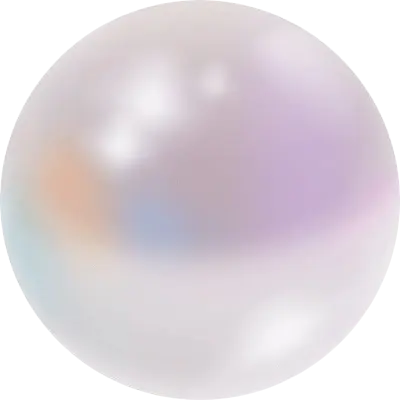Curious what languages besides English you all read in and how it compares to English.

I can read Russian... with the help of a dictionary. Several things I've noticed: 1. Russian is much more expressive in terms of duration, location, and movement. The differences between заходить/зайти/приходить/прийти/выходить/выйти/уходить/уйти contain information that isn't usually expressed in English. I hesitate to say that these things are untranslatable (everything is translatable) but it would be *unnatural* to try and do so. English speakers don't usually need to know you went into the store for a bit then left to return home; you just went to the store. 2. Russian is much more insistent about things seeming or appearing or happening rather than being. Contrary to popular belief, Russian does have a copula (indeed, it has copulae), though they are rarely used. Instead, various verbs of appearing/happening/seeming take their place. Connected to this is the use of predicate adjectives and adverbs, which are usually gendered neutral, and the use of passivized reflexive verbs. From what I've been taught, this is supposed to represent politeness. I can't help romanticising, though, the idea that it emerges out of the uniqueness of the Russian psyche, on the tundra where nothing is permanent, not even the snow. 3. English has essentially 3 strata of vocabulary. The basal level is Germanic and comprises 90% of the words used in everyday life; almost all of the grammatical particles are Germanic too. The second is French, which is about the remaining 8%. The final stratum is Classical, where "obsequious" and "anorexic" come from. Russian has a similar split (though I can speak with no authority upon usage). There is native vocabulary, like молоко, then Old Church Slavonic loans, like млечный, and finally 18th century French influence, such as лактоза. Unlike in English, however, it is considerably easier to form neologisms from combinations of native/nativized roots and prefixes. This means there is way less of a class distinction built in to vocabulary.
Native English speaker, self-taught in French and amateur in Russian. Russian has much more freedom for syntax because of how grammar is built into words (e.g., владимир убил веру and веру убил владимир both translate to 'Vladimir killed Vera' despite the word order being reversed) which once you get the hang of it makes for captivating opportunities in expression. French is comparatively similar to English, but the 'Passé Simple' tense is worth noting, seeing as they have a tense that is only really used in literature. It was only really until Camus' L'étranger that it became fairly mainstream to write without it. Of course Houellebecq still uses it.
Yes the Passé Simple is an interesting quirk of the language. I remember my French teacher remarking that outside of literature it's often used to denote some sort of importance to a monument or something along the lines. Personally I've always just assumed that, aside from tradition, it just helped keep the prose from getting too clunky with constant avoirs and êtres.
Interesting. It sounds a lot like Aorist in south-slavic languages, which makes everything sound either archaic or pretentious
Yeah you'd definitely sound pretentious if you started speaking in le passé simple in spoken French (which is so divorced from the written language). That sounds like an appropriate comparison.
I have some reading ability in French and I find that it's very different to English, even though the languages are usually thought of as quite close to one another. One of the things that I've noticed when reading French is that the sentences seem to go on forever, and it's definitely influenced my writing in English and now I'm a sucker for those longer sentences.
Croatian/Serbian. It's great for reading translations of slavic literature. Theres less lost in Rus to Cro than in Rus to Eng
Native English. I'm pretty fluent in Spanish and Portuguese, but still need frequent recourse to a dictionary for random vocabulary words when I try and read literature (as opposed to news etc) in those lingos. For example from a text I read recently, I had to look up words meaning "cutlass", "reed", "knave", "heron", and "tadpole" just on one page. So I really only read poetry, prose just takes too long.
Yeah I find that same struggle reading prose in French particularly pre-20th century novels where I have to dig up definitions of archaic terms. Have you read any Pessoa? I remember picking up a book of his poetry and almost learning Portuguese for him alone.
My mother tongue is Spanish but I unfortunately haven’t read much. I’ve been reading a lot of French poetry recently and something interesting I noticed is that, though French is not a stress-timed language, the iambic rhythm seems to come more naturally than English. It might just be the way I read it though.
Native Danish speaker, self-taught German & French. I suspect that the feeling of any given language has far more to do with me, than it does with the language itself. When reading German, I have the impression that it's incredibly regimented, a German sentence always has the feeling of being built by very particular rules. Partly, this has to do with the case system, but I think another part of it is how much time I've spent on German grammar, compared to the grammar in any other language, which constantly places it at the front of my mind. French is my weakest language. Something simple like Houellebecq I can read without much aid, albeit at a slow pace, but Alexis Jenni was a struggle. This, combined with some low-key francophilia, gives French some magical, far-away feel like a linguistic promised land. English has had as huge a part of my life as my native language. It's become the language for everything, so to me it means nothing. Danish (and the other Scandinavian languages), when I read them just feel like home. I love them.